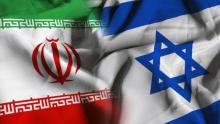
The contested land of Palestine had been largely populated by Muslim peoples from the 7th century until the mid-twentieth century. In 1947, the year that the United Nations recommended the partition of Palestine into two states, only 1/3 of the land’s inhabitants were of Jewish background. On May 14, 1948, David Ben-Gurion, the Executive Head of the World Zionist Organization and the chairman of the Jewish Agency in Palestine, declared the establishment of a new state of Israel, and the first Middle East war between the new Israeli army and Arab states ensued. Palestinians and Arab neighbors regarded the creation of the new state as an occupation of the historic residents of the land. Over the course of this first Middle East war and those that followed hundreds of thousands of Palestinians became a displaced population.
Subsequently wars occurred in 1956, 1967, 1973, 1982, and intermittently from the 1980s until today. (In the 1967 war Israel occupied, the West Bank, Gaza, the Old City of Jerusalem, the Sinai Peninsula, and the Golan Heights, formerly Syrian land). These wars were fought between Israelis, Palestinians and states neighboring Israel. Disputes involved multiple issues including the legitimacy of the state of Israel; Israeli expansion, particularly its continuing construction of settlements in the West Bank and the displacement of Palestinian people; the rights of Palestinians inside Israel, and control of water and land throughout the region. Various organizations challenging the Israeli state and land expansion emerged over the last fifty years including the Palestine Liberation Organization, Hamas, and Hezbollah. Several nations supported contending parties to the Israeli/Palestinian conflict such as the United States and the former Soviet Union during the Cold War, former European colonial powers such as Great Britain and France, and neighboring Arab and other Muslim states.
The United States became Israel’s main ally during all these years. Since 1979 Israel has been the largest recipient on a per capita basis of foreign assistance from the United States of any of the latter’s clients. In addition, Israel has become the best equipped and most powerful military force in the region, largely due to the billions of dollars of US military assistance. Israel is the only state with nuclear weapons in the region. In a recent budget decision, the United States has agreed to provide military assistance totaling $3.8 billion per annum for ten years to Israel beginning in 2019.
Finally, pro-Israel lobby groups in the United States support continued military and economic aid to Israel. Israel, with United States support, opposes serious negotiations with what is now the Palestinian Authority in the West Bank and Hamas-ruled Gaza. It is expected that recent West Bank/Gaza Palestinian agreements will harden Israeli opposition to serious negotiation.
Of course, Israel opposes initiatives from peace groups in the US and the international community. Currently, militant pro-Israel lobby groups as well as the Israeli government are pressuring Congress to pass legislation overturning Obama administration accords with Iran on nuclear weapons. Many also advocate US-led military action against Iran.
Violence and instability in the region, the tragedy of 9/11, worldwide terrorism directed against US targets, and insurmountable and spreading conflicts have been directly related to Israel’s economic isolation of and military actions toward the Palestinian people and the continuing US support of Israel’s policies. Within the United States, critics of US support of Israel are excoriated and politicians are intimidated such that policy debate on Israel’s treatment of the Palestinians inside Israel as well as economic embargoes and military attacks on interim Palestinian institutions and people in Gaza and the West Bank are largely censored from public discourse.
The particular mantra of rightwing groups, Republicans, Trump administration spokespersons, and many Democrats in 2017 is to label any critics of Israeli policy as “anti-Semitic.” Some of the strongest voices opposed to the total United States military and economic support for Israel come from progressives in the Jewish community. More Jewish people are becoming critics of Israel’s inhumane treatment of the Palestinian people. Many of these people proudly identify with their historical heritage of support for social and economic justice all around the world and are outraged by recent disingenuous claims of sympathy for the Jewish people from Conservative politicians in both political parties, think tanks and religious lobby groups, and sectors of the mainstream media.
By Harry Targ
